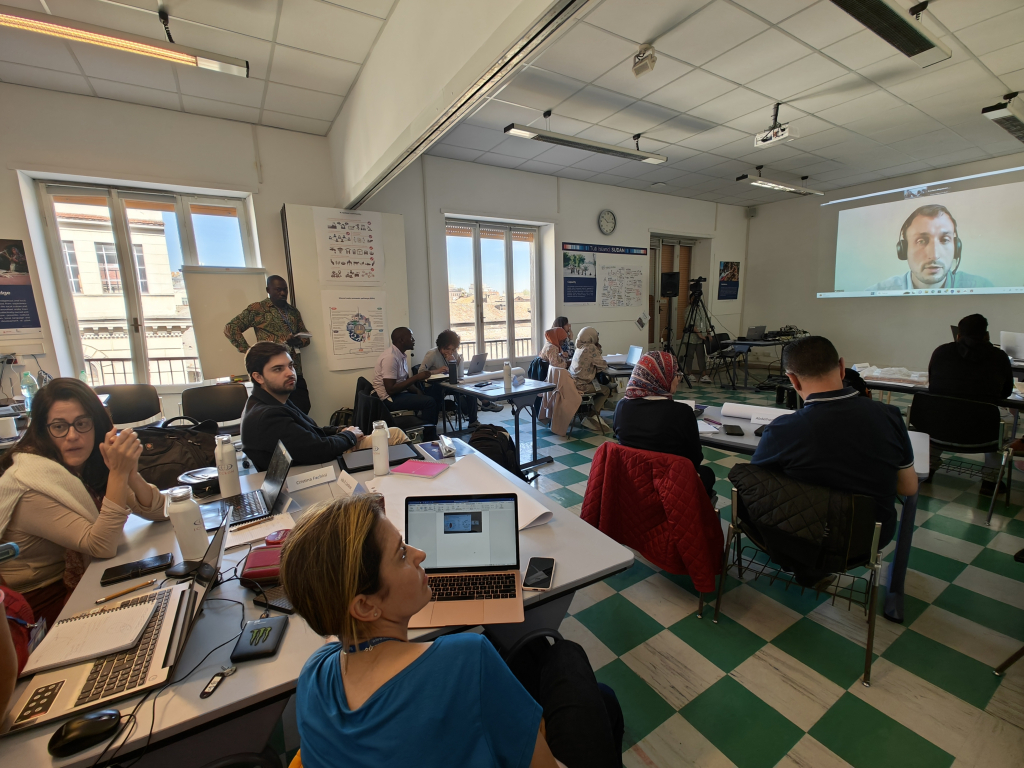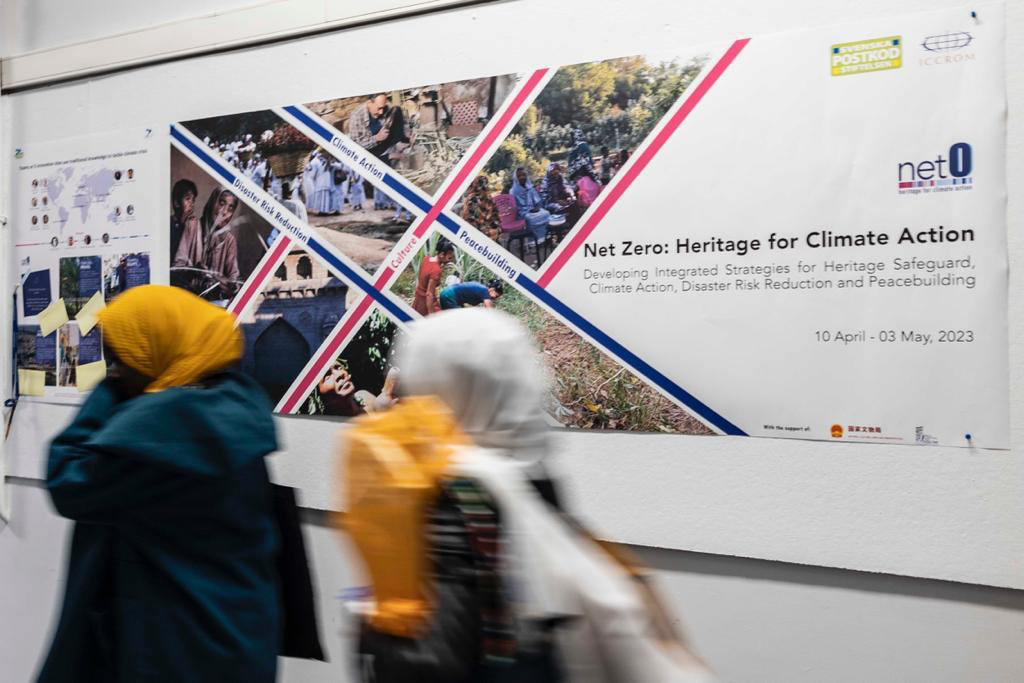Starting today, multidisciplinary teams from climate hotspots in Brazil, Egypt, India, Sudan and Uganda and their “sherpas” (mentors) are gathered at ICCROM headquarters for a hybrid three-week workshop on “Developing Integrated Strategies for Heritage Safeguard, Climate Action, Disaster Risk Reduction and Peacebuilding.”

After an intensive six months of desk and field-based research at their “innovation sites,” the teams will now identify how they can use Indigenous and traditional knowledge to adapt to a changing climate, reduce the risks of disasters and conflicts, and contain emissions.
Organized by ICCROM’s flagship programme, First Aid and Resilience for Cultural Heritage in Times of Crisis (FAR), the workshop – taking place from 11 April to 3 May 2023 – is the second phase of our pioneering capacity-development initiative, “Net Zero: Heritage for Climate Action,” generously supported by the Swedish Postcode Foundation.
In the coming weeks, the teams, accompanied by their sherpas, will work with diverse area specialists – including climate scientists, disaster risk reduction experts, heritage professionals, oral historians, peacebuilders, ecologists and development economists – to develop strategies for heritage-based climate action at their innovation sites. A series of experiential learning activities, case studies, lectures and field visits will enable them to assess climate risks and share traditional knowledge and practices, and identify mitigation and adaptation strategies for their action plans.

At the end of the workshop, the teams will return home with action plans aimed at protecting at-risk heritage and cultural bearers from the impacts of climate change while contributing to the global goal of net zero emissions. Seed grants will support the implementation and field-testing of these action plants. The teams’ sherpas will help monitor progress, and the ICCROM team will check in with the teams bi-monthly.
Later this year, we will organize an international symposium to disseminate the action plans’ results among policymakers, UN agencies and all relevant communities. A publication collecting success stories and lessons learned on the ground during the Net Zero project will follow.
Net Zero at a glance
“The Net Zero: Heritage for Climate Action” is a multilevel capacity development project that aims to foster inclusive and participatory action to reduce vulnerability to climate change, safeguard heritage and secure livelihoods of vulnerable communities. Net Zero addresses the Sustainable Development Goals (SDGs) and Sendai Framework for Disaster Risk Reduction.
Workshop programme highlights
A shake-a-leg icebreaker challenge to showcase dance practices from Indigenous communities from each innovation site.
A theme-setting lecture on heritage-based climate action by Andrew Potts from the Climate Change and Heritage Working Group (CCHWG).
Climate risk scenarios for heritage and cultural bearers in consultation with Roxy Matthew Koll, a climate scientist and the lead author of IPCC reports.
Field visit and live case study to Cinque Terre in collaboration with the Parco Nazionale delle Cinque Terre to play inSIGHT with their local communities and conduct multi-stakeholder consultations for developing a regional climate adaptation plan.
Group activities to leverage heritage for developing integrated mitigation and adaptation strategies in consultation with experts on flood mitigation, disaster risk reduction, peacebuilding, biodiversity and ecology, and food security.
A day dedicated to learning the principles of nonviolent communication to constructively resolve tensions within target communities and engage multiple stakeholders with Dr Stephane Lemaire.
Workshop to identify the specific actions that can ensure a peaceful outcome for their respective projects and develop peacebuilding indicators and strategies by Dr Elly Harowell from the Centre for Trust, Peace and Social Relations.
Session on the importance of leveraging Indigenous people's knowledge and practices to scale up climate action with Dr Anne Poelina, an Indigenous Leader and a Nyikina Warrwa Traditional Custodian from Western Australia.
Cost-benefit analysis for community-led climate action from the point of view of development economics by experts from the Abdul Latif Jameel Poverty Action Lab (J-PAL), co-founded by 2019 Nobel Prize winners in Economics for their pioneering approach to alleviating global poverty.
Final jury presentation with multidisciplinary experts:
Ms Erminia Sciacchitano, Advisor for Multilateral Relations for the Minister’s Cabinet, Ministry of Culture, Italy
Ms Josefine Lindstrom, Project Manager, Swedish Postcode Foundation
Mr Sanjaya Bhatia, Head of Office Incheon, UN Office for Disaster Risk Reduction (UNDRR), Office for Northeast Asia (ONEA) & Global Education and Training Institute (GETI)
Ms Sarah Stannage, Executive Director, International Institute for the Conservation of Historic and Artistic Works – IIC
Mr Valéry Freland, Executive Director, ALIPH Foundation
Ms Valerie Magar, Unit Manager, Programmes Unit, ICCROM
#HeritageforClimateAction #Culture4Net0
